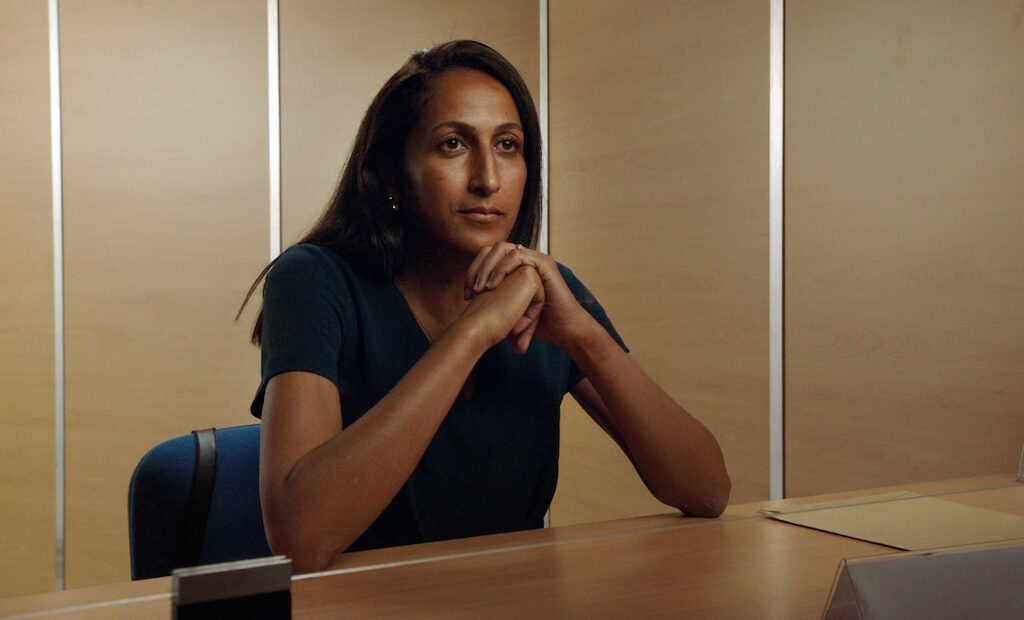Europe

Some large-scale events feel the need to have an annual theme, such as Eurovision 2021’s “Open Up”, or “Dare to Dream” from the previous instalment. Berlinale doesn’t bother branding itself in such a way, but if a theme for 2022 had to be determined, it might be static camerawork. Both Axiom and The Kegelstatt Trio barely move their cameras, allowing the screen to form an almost proscenium arch type of space. And now for good measure, here’s Europe, whose camera has similarly lost the ability to be repositioned.
Algerian Zohra (Rhim Ibir) has settled in France, although her residency isn’t permanent. She has recently married back in Algeria, and had intended to apply for a family reunification permit, allowing her new husband to migrate to France. Having just successfully completed treatment for severe scoliosis, Zohra receives a nasty shock when she learns that her own residency was dependent on her needing ongoing medical care. Now that she’s on the road to recovery, French authorities have ordered her to leave the country.
Ibir is a warm, generous performer and her Zohra has a tangible tenderness. The character’s struggles may be low-key, but they still have the potential to wreak havoc on the life she’s hoping to build in France. Ibir truly makes the audience invested in the outcome.
Perhaps the static, fixed camera is a nod to director Philip Scheffner’s background in documentary filmmaking. It occasionally distracts, but doesn’t deter on any significant level; this isn’t a rapid piece that needs multiple angles to convey its intent. What is truly peculiar is the concealment of Zohra herself. After her order to leave France is confirmed by a sheepish bureaucrat, the migrant temporarily vanishes from the screen, although not from the story. Characters talk to her, but she is apparently just outside of the frame. They occasionally pause, seemingly listening to Zohra’s “reply” (which the audience isn’t privy to). For a change of pace, this tactic is reversed after Zohra has been physically absent from proceedings for a good 30 minutes when she returns and speaks to someone just out of frame, and pauses to listen to their “reply”. Quite what this is supposed to symbolise is perplexing. Is Zohra’s presence already fading from the life she’s made for herself? If so, Mr Scheffner, just move your camera a few inches to the left and the problem will be solved.
Oliver Johnston
Europe does not have a UK release date yet.
Read more reviews from our Berlin Film Festival 2022 coverage here.
For further information about the event visit the Berlin Film Festival website here.






















Facebook
Twitter
Instagram
YouTube
RSS